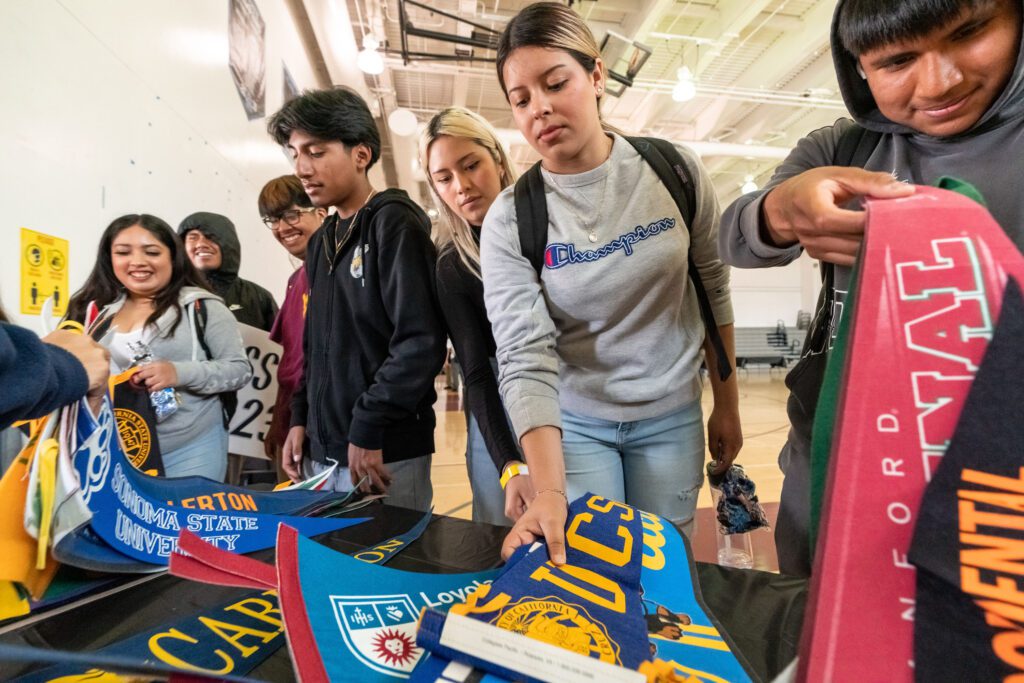
The Free Application for Federal Student Aid, commonly known as FAFSA, is the gateway to financial assistance for millions of students pursuing higher education in the United States. It’s a lifeline that makes college affordable for students such as ours. It helps determine eligibility for free aid such as grants, in addition to work-study programs, federal student loans, and some scholarships.
In 2020, Congress passed the FAFSA Simplification Act to streamline the FAFSA application process, connect directly with information provided by the IRS, remove barriers to access for key student populations, and expand federal aid eligibility. The new application, called the Better FAFSA, will also change the awarding calculation.
This year, the Better FAFSA form will open no later than January 1, 2024 instead of the usual October 1 (2023) start date. With the later availability of the form, students will have a shorter window of time to apply and potentially a later deadline date. For high school seniors, this later timing may prevent them from having complete information on which to base their college decisions, as financial aid is a huge part of their decision-making. This is especially true for students from low-income communities, such as our students, for whom financial aid is most often the singular most important factor in their choice. For currently enrolled college students, who need to submit the FAFSA application each year, they will need to be “retrained” on how to complete this new form. This later processing window may also result in a delay in receiving their financial aid, which could affect their ability to afford tuition and other educational expenses. The delay in processing can also impact students’ access to other state and institutional aid as the processing time affects applications for these other types of financial aid.
In addition, there are concerns that changes in the new calculation of student aid as a result of this legislation may result in reduced Pell Grants for students from families with incomes between $60,000 and $100,000. The new award calculation will also no longer account for whether other family members are also seeking aid, which makes the available family income smaller for college-going. The new calculation will only factor in the student’s situation as a singular student, regardless of whether they have siblings or other family members from the same household income also pursuing college (i.e., whether that family has other college costs to consider.) Finally, for currently enrolled college students, many of whom had based their college choices on the amount of student aid they were eligible for at the start of college, this new calculation may result in a different amount of aid available to them and may potentially cause further financial hardship that can waylay their ability to complete college.
The new Better FAFSA has all types of implications for our students. Our staff is diligently and proactively participating in training that will help our students be best able to navigate these changes and make the right choice for their best-fit colleges. In the new calendar year once this new application has opened, our College Access team will be hosting a series of financial aid workshops for our high school seniors and their parents, while our College Success team will be doing the same for our currently enrolled college students. Whatever changes or challenges that come along, Fulfillment Fund sticks by our students to help them make the choices and learn the skills to advance their educational and life goals.